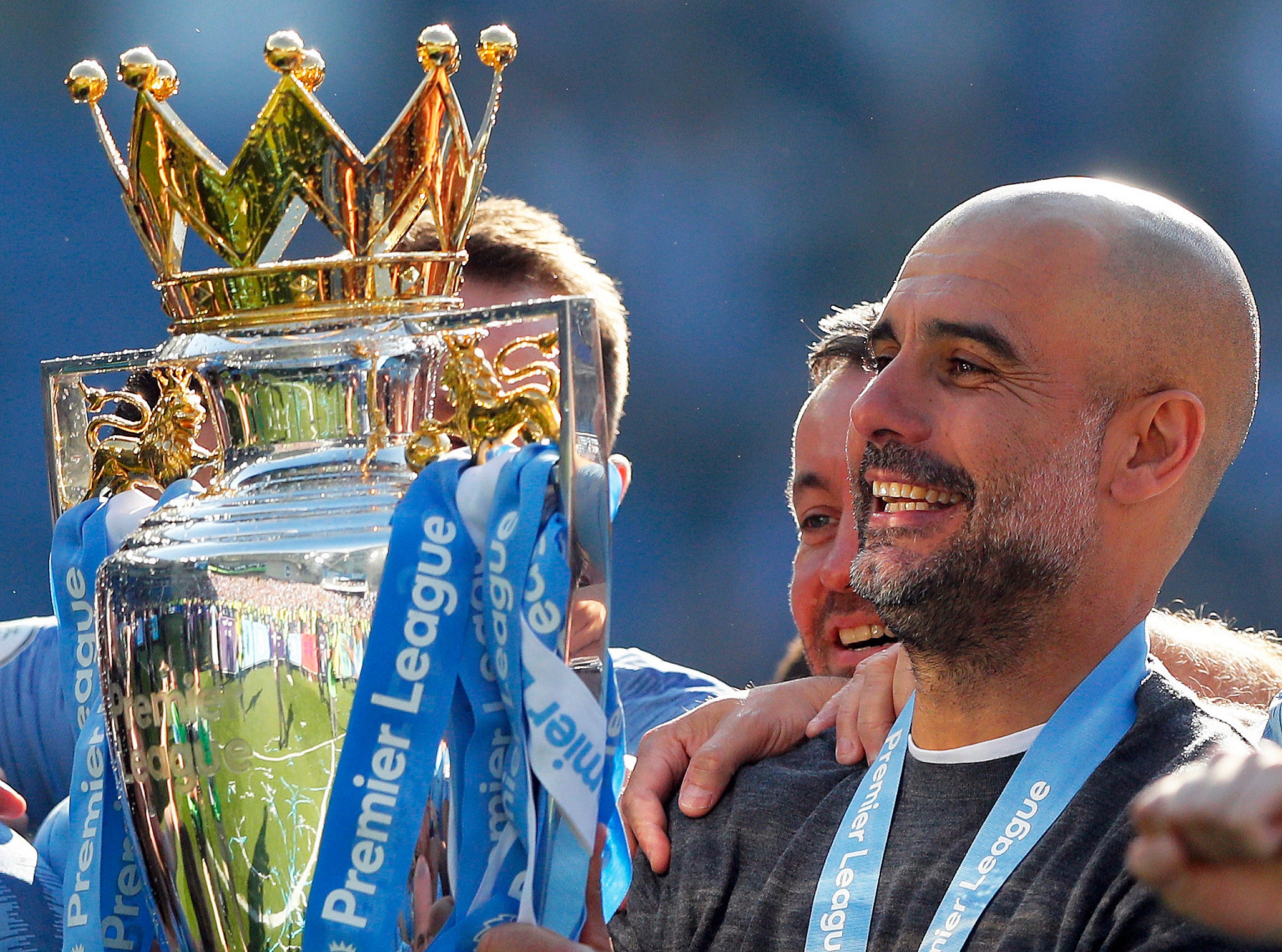Why Liverpool and Man City’s transfer business is a sign of well-run clubs flourishing where their rivals falter
By identifying players who fit the system, Jurgen Klopp and Pep Guardiola significantly reduce the risk factor that comes with the scattergun approaches of Manchester United, Arsenal and Chelsea

In the midst of last season’s near relentless title run-in, and despite so much tension ratcheting everything about it up, both Jurgen Klopp and Pep Guardiola still had to take time out to try and more calmly plan for this season’s race.
The two already knew, however, that they wouldn’t need to do anywhere near as much business as previous windows. And that wasn’t just down to how well they were performing last season. It was down to something much wider.
Duly, the restrained numbers of this summer haven’t come close to matching the bombastic figures of last season’s Premier League table. Liverpool have so far only spent £1.3m, and that on 17-year-old Sepp van den Berg from PEC Zwolle.
Manchester City meanwhile remain the second biggest Premier League spenders in this window, but that’s still just on two players in Rodri and Angelino, and that is fairly conservative given what their immense resources make them capable of.
The truly relevant point is that they didn’t just go out and splurge, but instead secured specific positions they need. It was so forensic, so calculated - so much a sign of a well-run club.
The root of why that is is one major reason why City and Liverpool have pulled so far clear of the rest of the Premier League, why they dominated all of last season’s major trophies, and why they have even become examples among the super-wealthy super-clubs for how to conduct your transfer business.
What really elevates them is their base idea of how to play.
They have both been exquisitely clear in deciding the club football philosophy, and what traits anyone arriving must meet.
That sounds simple but actually isn’t, and takes real football vision, foresight and execution - not to mention decisiveness. You only have to look at the problems Manchester United have faced in this regard, or the jumble that the Chelsea squad has become.
City maybe suffered some of those problems in the early days after the 2008 takeover, but began to solve them when they wholesale imported the Barcelona technical department - or, as many in the game describe them, “the Apple of football” - around the time of their 2012 title win. Remember how ridiculed the “holistic” approach was when cited as a reason for Roberto Mancini’s sacking? It isn’t being ridiculed now. It is feared. The pieces were being put in place to integrate the Camp Nou - or, really, Guardiola - way, that has for a while now represented the cutting edge of the game.

It hasn’t been alone there, and one of the reasons that Guardiola’s way has remained at the cutting edge is because it has so absorbed the most modern developments - specifically, the German pressing popularised by Klopp. That is also at the forefront of the game.
Liverpool had started to look to this before they appointed Klopp but, like with Guardiola at City, the German was the absolute perfect appointment who crystallised everything they were trying to do.
The profound advantage of all of this - and why it makes their teams so good and transfers so effective - is that it at a stroke eliminates so much scope for errors in trying to build your team. You aren’t taking a punt on players, or signing them with a vague idea of where they might fit in, subject to change.

You already know - often within minutes, in the words of one figure who works at Liverpool - whether any player will fit into the system, and how.
This is how their teams work so well. This is how their recruitment works so well.
This is why both are almost having those Sir Alex Ferguson summers. Sure, they’ll occasionally make the big signings and teams will move in cycles, but the side works so well they can generally keep things ticking over with one or two purchases.
This idea obviously can’t completely eradicate errors. Some players just won’t settle, others will have bad spells.
The majority, however, will just fit.
It represents a huge advantage, from which everything else at a club flows - not least such good football. And, in this case, a calmer summer.
Join our commenting forum
Join thought-provoking conversations, follow other Independent readers and see their replies
Comments